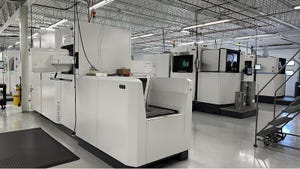January 20, 2012

When zinc-coated screws are used to fasten stainless steel plates, the screws will corrode rapidly. But when stainless screws are used to fasten zinc-coated steel plates, neither the screws nor the steel will corrode particularly fast. Why?
To answer this question, we need to understand galvanic corrosion. Most engineers have heard something about it. They may have heard that certain materials shouldn't be used in combination with others, but the details of this are often only partially understood. After all, most mechanical engineering curriculums don't include classes on corrosion.
Corrosion is an electrochemical reaction, and for it to take place, you need three things: an anode, a cathode, and an electrolyte (usually water). For any combination of two metals, the less noble of the two will be the anode, and the more noble of the two will be the cathode. The anode will corrode; the cathode will not.
Which metal of a given pair is more noble? This can be determined by reference to something called the galvanic series. The most noble metals are at the top of the list, while the least noble metals are at the bottom. (Sometimes it is given in the opposite order, with the least noble metals on top.) The most noble metals include platinum, gold, silver, and titanium. The least noble metals include magnesium, zinc, cadmium, and aluminum.
The galvanic series is for seawater. The order of some metals may be slightly different in other environments. However, in the absence of detailed information about a particular environment, the galvanic series in seawater is usually a good reference point.
The farther apart two metals are in the galvanic series, the greater the tendency will be for the less noble of the two to corrode. For example, the corrosion current between titanium and aluminum will be greater than the corrosion current between aluminum and cadmium.
Corrosion rates are related to the anode-to-cathode surface area ratio. The smaller the anode is relative to the cathode, the more quickly the anode will corrode. Going back to the question at the beginning of the article, we can now see why zinc-plated bolts used to fasten stainless steel plates will corrode rapidly. Zinc is less noble than stainless steel, so the zinc-plated screws will act as anodes. The screws are small compared to the steel plates. This means that the anodes are small compared to the cathode, leading to a fast corrosion rate.
About the Author(s)
You May Also Like



